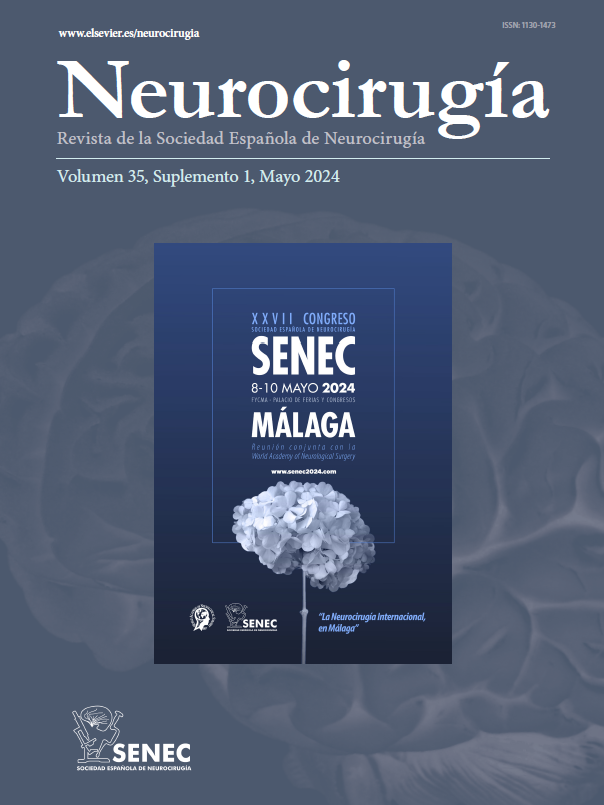Nuestro objetivo fue el estudiar la correlación entre las maniobras anestésicas y la aparición de CSWS en pacientes neuroquirúrgicos.
Se estudiaron quinientas veintiuna craniotomías consecutivas, excluyendo las relacionadas con el hipotálamo, el tercer ventrículo o hipófisis y aquellos con patología renal.
Factores estudiados: ingesta líquida, diuresis, hipertensión intracraneal, corticoides, furosemida, manitol, hipnóticos, opiáceos, duración de la cirugía y tiempo hasta la extubación.
Se observaron treinta y dos casos (6,14%) de Cerebral salt wasting syndrome (CSWS). Su aparición sólo se vio relacionada con la administración de opiáceos. Treinta de estos casos habían recibido fentanilo > 0,25mg más morfina > 5mg y los otros dos restantes fentanilo 0,20mg más morfina 5mg. Ninguno de los 93 pacientes que recibieron fentanilo ≤ 0,15mg y ninguna morfina desarrollaron CSWS.
ConclusiónLa administración de dosis medias o altas de opiáceos (fentanilo >0,25mg y morfina >5mg) en el curso de cirugía cerebral parece de algún modo predisponer a la aparición de CSWS.
We aimed to study the relationship between the anaesthetic manoeuvres and the appearance of Cerebral salt wasting syndrome (CSWS) in neurosurgical patients.
Five-hundred and twenty-one consecutive craniotomies were studied, excluding those related to the hypothalamus, IIIrd ventricle and pituitary and those with kidney troubles.
Factors studied: fluid intake, diuresis, intracranial hypertension, corticoids, furosemide, mannitol, hypnotic agents, opioids, anaesthetic gases, duration of surgery, and time to extubation.
Thirty-two cases (6,14%) of CSWS were seen. Its appearance was related only to opioid administration. Thirty of the cases had received fentanyl > 0,25mg plus morphine > 5mg and the other two fentanyl 0,20mg plus morphine 5mg. None of the 93 patients managed with fentanyl ≤ 0,15mg and no morphine at alla developed CSWS.
ConclusiónThe administration of medium/large doses of opioids (fentanyl >0,25mg and morphine >5mg) during brain surgery seems to somehow predispose to CSWS.
Article

If it is the first time you have accessed you can obtain your credentials by contacting Elsevier Spain in suscripciones@elsevier.com or by calling our Customer Service at902 88 87 40 if you are calling from Spain or at +34 932 418 800 (from 9 to 18h., GMT + 1) if you are calling outside of Spain.
If you already have your login data, please click here .
If you have forgotten your password you can you can recover it by clicking here and selecting the option ¿I have forgotten my password¿.






